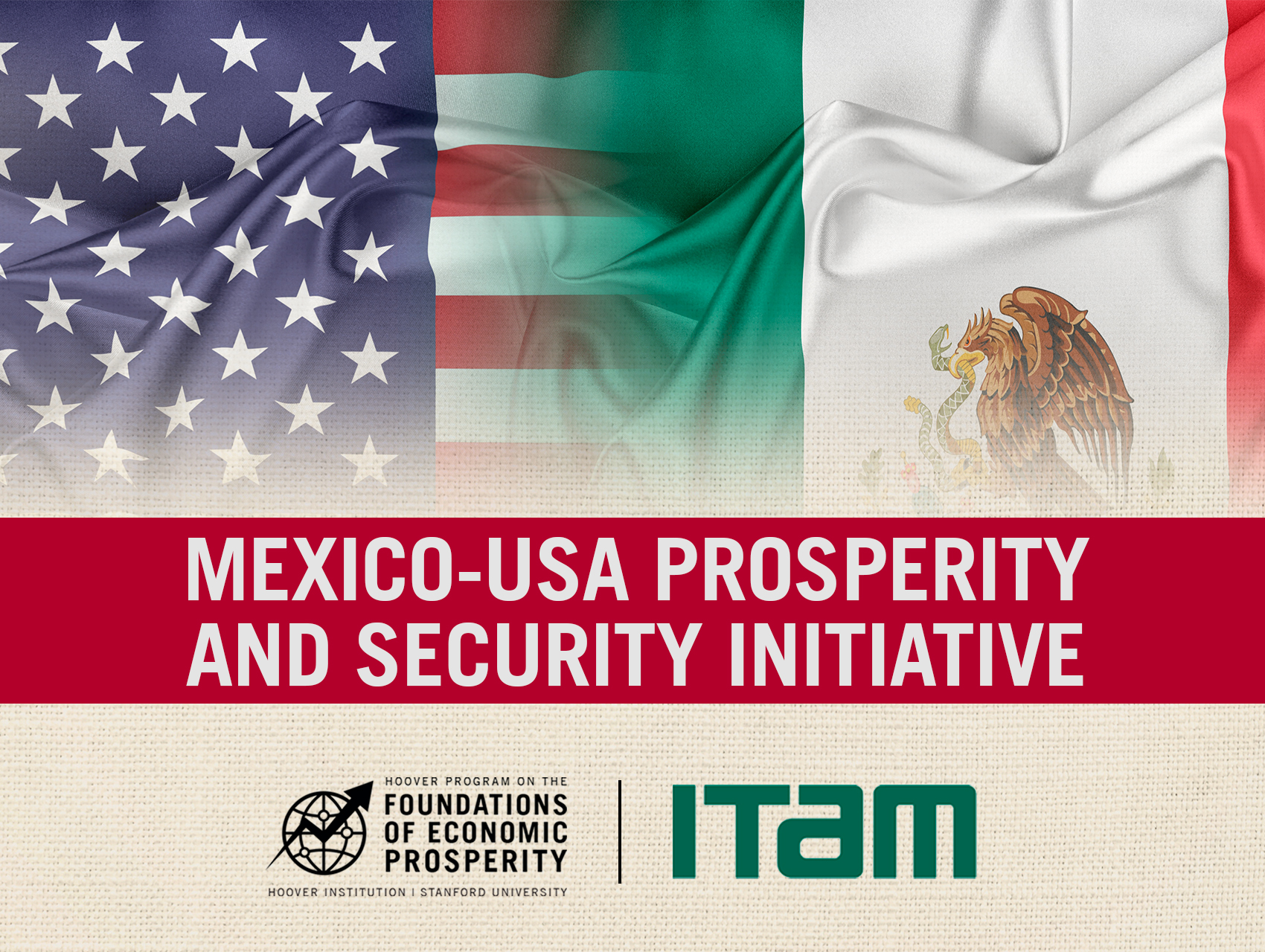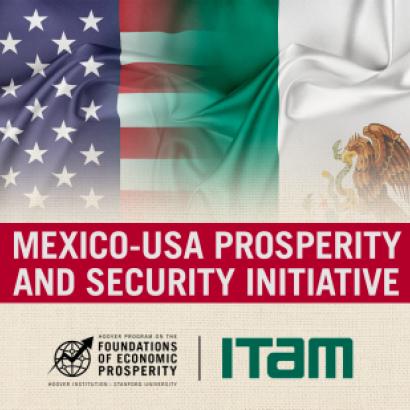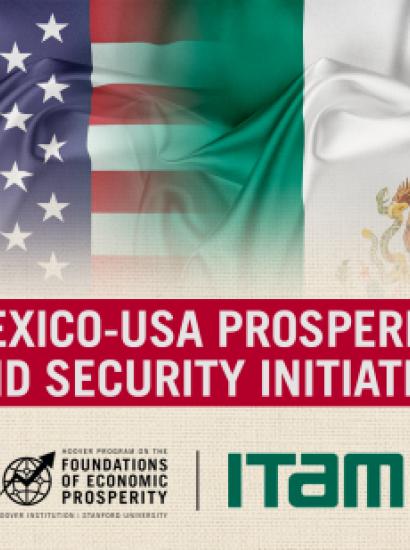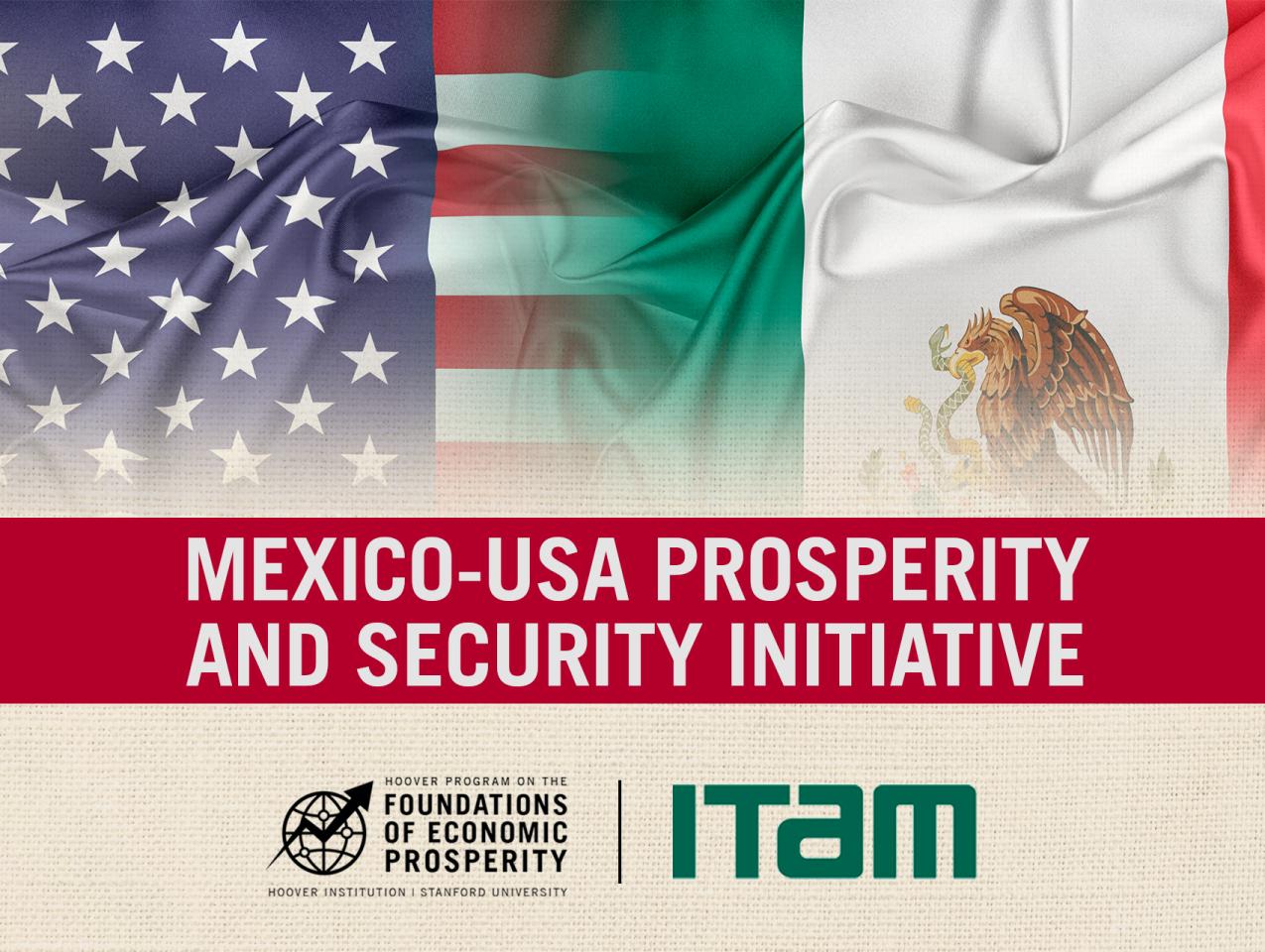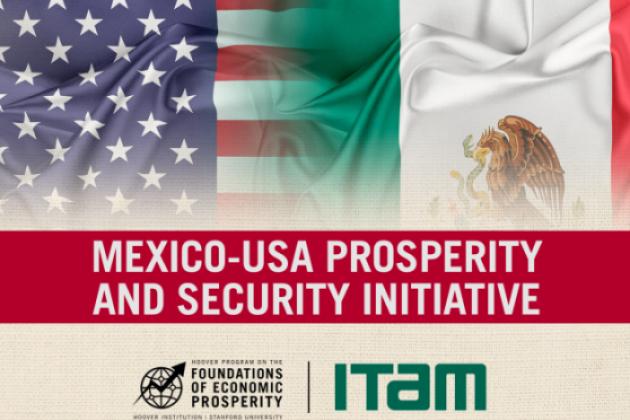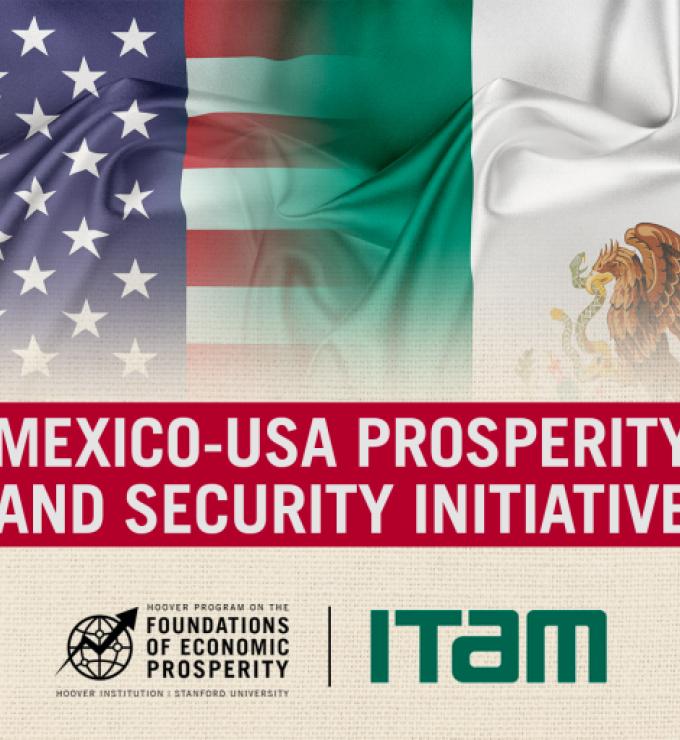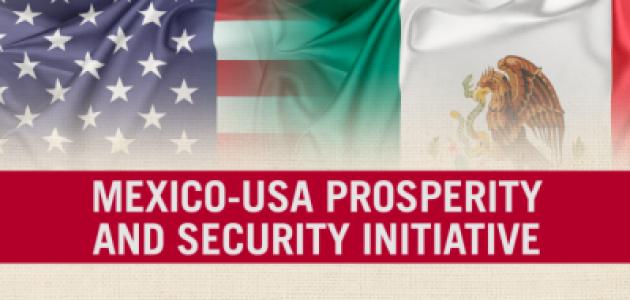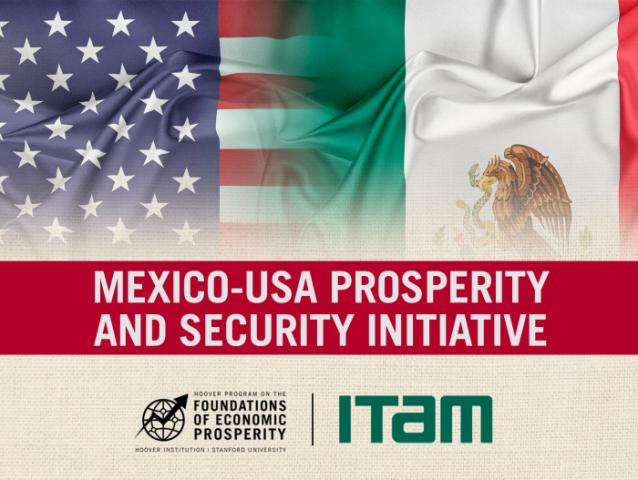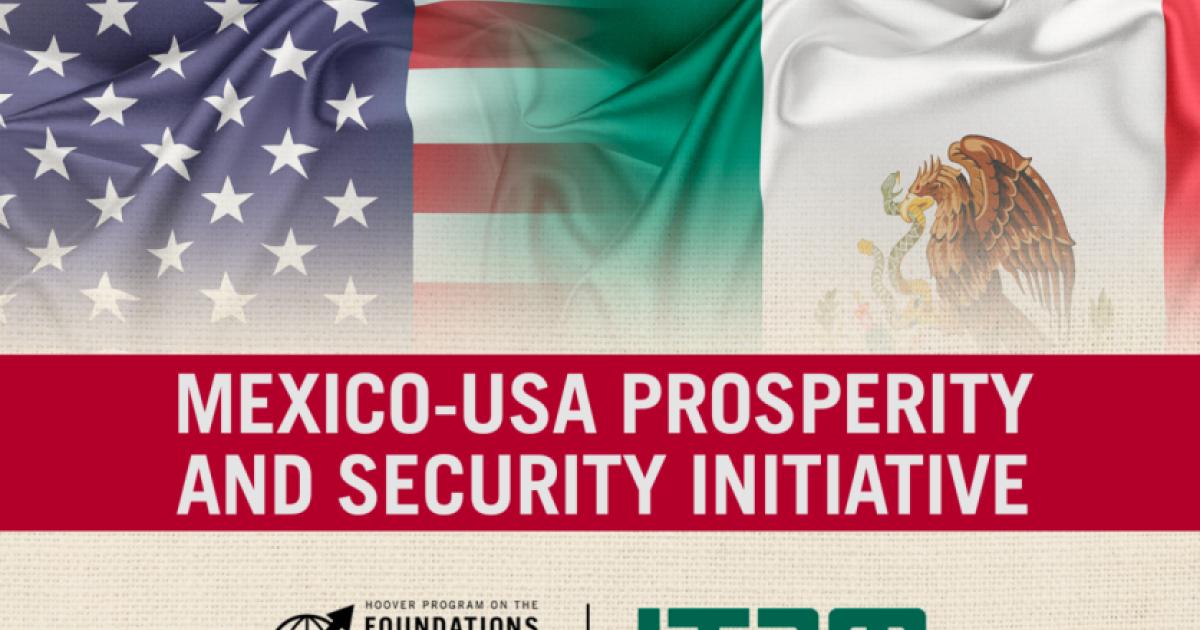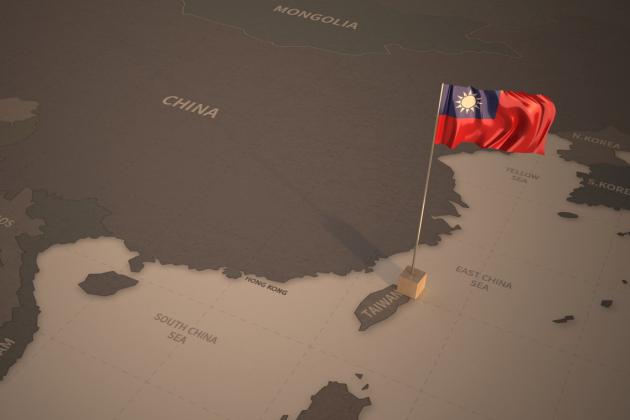The Hoover Institution and ITAM hosts the Mexico-USA Prosperity and Security Conference on November 24, 2025.
Mexico and the United States share deep ties shaped by geography, history, and mutual interests. With a 2,000-mile border, cooperation between the two nations is essential to addressing challenges in security, migration, the environment, and economic growth.
This dialogue brings together leaders and experts to assess what has worked in the Mexico–U.S. relationship, where tensions persist, and how both countries can strengthen collaboration to promote shared prosperity and security.
This conference is by invitation only.
| Thursday, March 6th | ||
|---|---|---|
| Time | Content | Presenters |
|
9:00 AM |
Registration |
-- |
|
9:30 AM |
Welcome |
Arturo Fernández, President, ITAM |
|
9:40 AM |
Inaugural Remarks |
Marcelo Ebrard, Secretary of Economy |
|
10:00 AM |
Session 1 – Where is the US going? A natural starting point to think about the Mexico-US relationship is to identify the forces that have driven U.S. policies over the long term. Some key questions in this respect are the following: 1. Isolationism is not a new current in American politics. Which forces and factors give rise to it? Has the most recent episode of isolationism fundamentally and 2 irreversibly changed the views of voters about the relationship between the U.S. and the rest of the world? 2. The United States has been the world’s leading economy and military power for the past century. How has the U.S. responded to challenges to its dominant position? How is it responding to the challenge posed by a rising China? What sets of relationships with third countries might help the U.S meet this challenge? |
Opening Address: Stephen Haber, Park L. Loughlin Senior Fellow, Hoover Institution |
| 10:40 AM |
Break |
-- |
| 11:00 AM |
Session 2 – Integration to Promote Common Prosperity From an economic perspective there are four main questions confronting the United States and Mexico: 1. What effects did economic integration since the 1990s have on the economies of the United States and Mexico? What would be the effect on both countries of reversing economic integration? 2. What challenges were surfaced by the economic integration of the United States and Mexico? How might future challenges be mitigated? 3. Are there important areas where there is scope for additional integration of the U.S. and Mexican economies to the benefit of both countries, most particularly in service-related lines of economic activity, such as long-term health care? 4. The United States and Mexico share common geological formations that include significant deposits of shale oil and gas. What opportunities exist for both countries in the efficient exploitation of those deposits? What challenges must be addressed to do so? 5. How important is Mexican labor in the U.S. economy? What would be the likely impact over the long term of a dramatic reduction in America’s Mexican workforce? Are there useful lessons from previous efforts with temporary worker programs that might inform current debates? |
Moderator: Luis Tellez, former Chief of Staff to the President and Minister of Energy and Minister of Transport |
| 1:00 PM |
Lunch |
-- |
| 2:30 PM |
Session 3 – Geopolitics and Security From a national security perspective there are three major questions confronting the United States and Mexico: 1. Is the United States stepping back from its role as world hegemon, such that security will be based on regional blocs? What would Mexico’s role be in a North American bloc? What challenges would have to be addressed for it to fill this role? 2. A major challenge that the U.S. faces is undocumented migration from around the world. A major challenge for Mexico is that U.S.-bound migrants and refugees are using it as a conduit and way station. What institutions and arrangements might be created to help both countries meet these challenges? 3. Both the United States and Mexico face a security challenge posed by transnational criminal organizations. What are the margins for stronger cooperation between Mexico and the US to combat these organizations? What lessons can we learn from past episodes of stronger and weaker cooperation between both countries? |
Moderator: Gen. H.R. McMaster, Fouad and Michelle Ajami Senior Fellow, Hoover Institution, former National Security Advisor |
|
4:30 PM |
Closing remarks |
Alejandro Hernández, Provost, ITAM |
| 4:45 PM |
Conclusion of conference program |
-- |
| 6:00 PM |
Dinner |
-- |
If you have any questions about the event, contact Hoover Prosperity Program, HooverProsperity@stanford.edu.
PARTICIPANTS
Ana M. Aguilar — Executive Director of the Mexican Business Council since May 2025. Senior Economist, Office for the Americas, Bank for International Settlements (2018-2025). Government Service (Mexico): Head, Directorate of Economic Studies, Bank of Mexico (1998–2018). Bio
Luis de la Calle — Managing Director, De la Calle, Madrazo, Mancera. Government Service (Mexico): Undersecretary for International Trade Negotiations, Ministry of Economy (1998–2002). Bio
Jorge Castañeda — Government Service (Mexico): Minister of Foreign Affairs (2000-2003). Bio
Daniel Chiquiar — Professor, Department of Economics, ITAM. Government Service (Mexico): Chief Economist, Bank of Mexico (2016–2021). Bio
Steven J. Davis — Thomas W. and Susan B. Ford Senior Fellow & Director of Research, Hoover Institution. Bio
Alejandro Díaz de León — Corporate Director of Grupo BAL. Government Service (Mexico): Governor, Bank of Mexico (2017–2021). Bio
Gerardo Esquivel — Professor-Researcher, El Colegio de México. Government Service (Mexico): Deputy Governor, Bank of Mexico (2019–2022). Bio
Arturo Fernández — President, ITAM. Bio
Rafael Fernández de Castro — Director, Center for U.S.–Mexican Studies (USMEX), UC San Diego. Government Service (Mexico): Foreign Policy Adviser to the President of Mexico (2008–2011). Bio
Carlos García — Senior Vice President Latin America Commercial Operations and CEO Valero México. Bio
Stephen Haber — Park L. Loughlin Senior Fellow, Hoover Institution; Director, Hoover Program on the Foundations for Economic Prosperity. Bio
Alejandro Hernández — Provost, ITAM. Bio
F. Scott Kieff — Visiting Fellow, Hoover Institution; Stevenson Bernard Professor of Law, George Washington University. Government Service (USA): Commissioner, U.S. International Trade Commission (2013–2017). Bio
Steven Koonin — Edward Teller Senior Fellow, Hoover Institution; former Chief Scientist for BP (2004-2009). Government Service (USA): Under Secretary for Science, U.S. Department of Energy (2009–2011). Bio
Vidal Llerenas — Undersecretary of Industry and Commerce, Secretariat of Economy (Mexico). Bio
Eugenio Madero — CEO & Chairman, Rassini. Bio
Lorenza Martínez — Vice President, Kapital. Government Service (Mexico): Undersecretary of Industry and Commerce, Ministry of Economy (2008–2012) Bio
Gen. H.R. McMaster — Fouad and Michelle Ajami Senior Fellow, Hoover Institution. Government Service (USA): National Security Advisor (2017–2018). Bio
Lourdes Melgar — Nonresident Fellow, Rice University’s Baker Institute for Public Policy. Government Service (Mexico): Undersecretary for Electricity, Ministry of Energy (2012–2014); Deputy Secretary for Hydrocarbons (2014–2016). Bio
Miguel Messmacher — Professor, Department of Economics, ITAM. Government Service (Mexico): Undersecretary of Finance (2018), Undersecretary of Revenues (2012-2017), Chief Economist (2007–2012), Ministry of Finance. Bio
José Antonio Rojas Nieto — Undersecretary for Electricity, Ministry of Energy (Mexico). Bio
Vidal Romero — Professor, Department of Political Science, Co-Director, Center for the Study of Security, Intelligence and Governance, ITAM Bio
Andrés Rozental — President, Rozental & Asociados; Founding President, Mexican Council on Foreign Relations. Government Service (Mexico): Deputy Foreign Minister (1988–1994); Ambassador to the U.K. (1995–1997); Ambassador to Sweden (1983–1988). Bio
Ana María Salazar — Journalist, Imagen Radio Government Service (USA): Deputy Assistant Secretary of Defense for Western Hemisphere Affairs, U.S. Department of Defense (1998–2001); Director for Inter-American Affairs, National Security Council (1998); Senior Adviser, U.S. Department of State (1995–1997). Bio
Natalia Saltalamacchia — Professor, Department of International Studies, ITAM. Government Service (Mexico): Director General, Matías Romero Institute (2015–2018). Bio
Paola Sapienza — J-P Conte Family Senior Fellow, Hoover Institution; Co-Director, JP Conte Initiative on Immigration. Bio
Sergio Silva — Head, Global Economic Intelligence Unit, Secretariat of Economy (Mexico) Bio
Alberto Simpser — Professor & Chair, Department of Political Science, ITAM. Bio
Carlos Slim Domit — Chairman, Grupo Carso, Telmex and America Movil. Bio
Luis Téllez — Mexico´s Chairman of Environmental Resources Management (ERM), and a member of the Mexico´s Executive Committee of NTT Data Services Mexico. Government Service (Mexico): Secretary of Communications and Transportation (2006–2009); Secretary of Energy (1997–2000); Chief of Staff of the President (1994 -1997); Undersecretary of Agriculture (1990–1994). Bio
Jorge Tello Peón — Co-Director, Center for the Study of Security, Intelligence and Governance, ITAM; Director General, Madison Inteligencia México. Government Service (Mexico): Director, National Intelligence Agency (1994–1999); Undersecretary of the Interior (1999–2000); National Security Adviser (2008–2011). Bio
Gabriel Tenorio — Economist (Latin America), Citadel. Bio
Guillermo Valdés Castellanos — Partner, GEA; Affiliate, Center for the Study of Security, Intelligence and Governance, ITAM Government Service (Mexico): Director, National Intelligence Agency (2007–2011). Bio
Alejandro Werner — Founding Director, Institute for the Study of Latin America, Georgetown University. Director Western Hemisphere Department, International Monetary Fund (2013-2021). Government Service (Mexico): Undersecretary of Finance, Ministry of Finance (2006–2010). Chief Economist and Chief if Staff, Ministry of Finance (2003-2006). Bio
Isabel Lopez Ysmael — Senior Research Program Manager, Hoover Institution. Bio
Jaime Zabludovsky — Executive Vice President, IQOM Inteligencia Comercial. Government Service (Mexico): Undersecretary for International Trade Negotiations, Ministry of Economy (1994–2000); Ambassador to the European Union (2001–2004). Bio
Philip Zelikow — Botha-Chan Senior Fellow, Hoover Institution. Government Service (USA): Executive Director, 9/11 Commission (2003–2004); Counselor, U.S. Department of State (2005–2007). Bio






